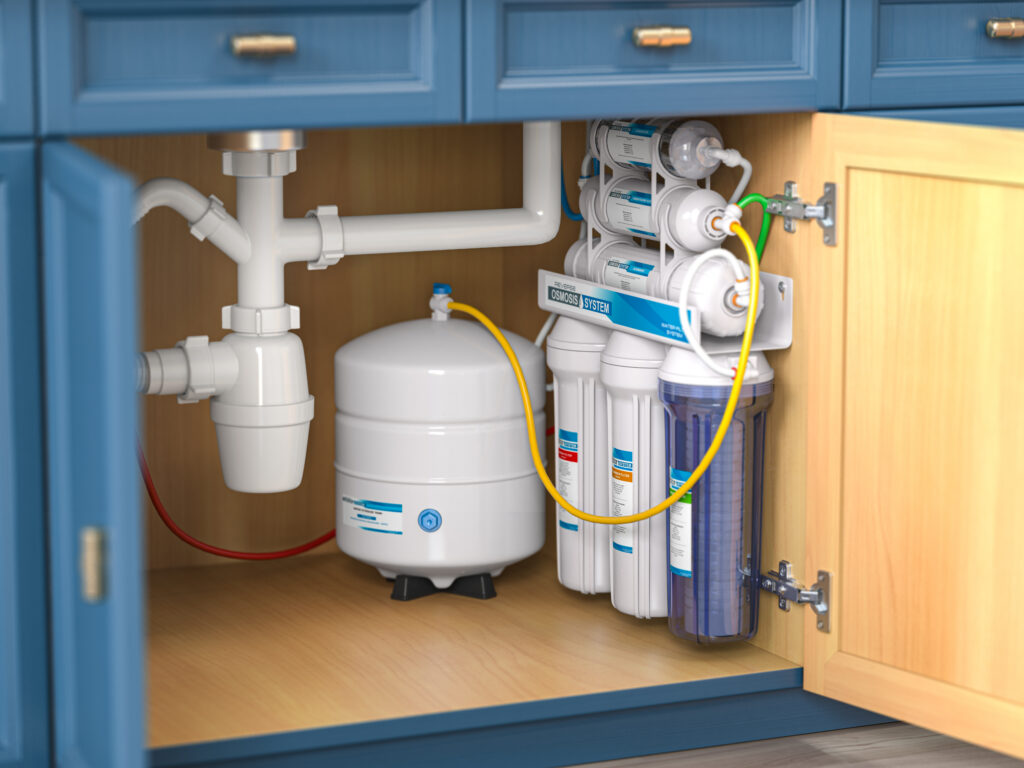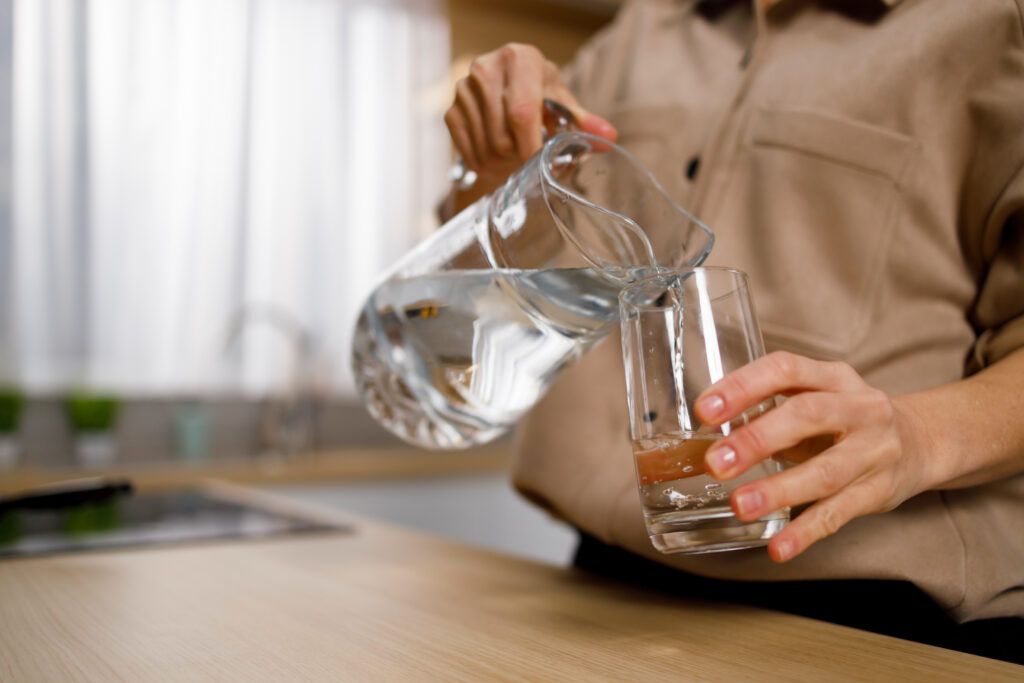A private well provides a reliable and independent water source, but ensuring its safety requires proactive maintenance. Unlike municipal water systems, which are regulated and treated before reaching homes, private wells are the homeowner’s responsibility. This means regular testing and well water treatment are necessary to remove contaminants, improve water quality, and protect both health and plumbing systems.
If left untreated, well water can contain bacteria, heavy metals, or excess minerals that affect its safety, taste, and usability. The right treatment system can eliminate these issues, ensuring clean, safe water for your household. This guide will explore common reasons for well water treatment, different treatment options, and how to choose the best solution for your home.
Common Well Water Contaminants
Every well draws water from underground sources, which can be affected by environmental factors, soil composition, and human activity. Over time, contaminants can enter the water supply, making treatment necessary. Here are some of the most common reasons homeowners need well water treatment.
pH Balance
Plumbing leaks, metallic-tasting water, and discoloration on fixtures are all signs that your well water’s pH levels may be out of balance. For example, green stains on copper pipes or red rust on iron pipes could indicate corrosion due to acidity. Additionally, a sour taste, scaling, or buildup on faucets and appliances can all be caused by either overly acidic or alkaline water.
Bacterial Contamination
Bacteria and other microorganisms can enter well water through surface runoff, septic system leaks, or cracks in the well casing. Coliform bacteria, including E. coli, pose serious health risks and can cause gastrointestinal illnesses. A positive bacteria test requires immediate action to disinfect the well and install a long-term treatment solution.
Mineral Buildup
Naturally occurring minerals like iron, manganese, and calcium can dissolve into groundwater, leading to staining on sinks, tubs, and laundry. Hard water, caused by excess calcium and magnesium, can also create scale buildup in pipes and appliances, reducing their efficiency and lifespan.
Chemical Contaminants
Agricultural runoff, industrial waste, and naturally occurring elements can introduce chemicals like nitrates, arsenic, and lead into well water. These contaminants can pose health risks, especially for young children and pregnant women. Regular testing is necessary to detect these substances and determine the best well water treatment solution.
Unpleasant Odors or Taste
A rotten egg smell is a common complaint from well owners, typically caused by hydrogen sulfide gas. Water with high sulfur content can also have a metallic taste or leave black stains on plumbing fixtures. Effective treatment can remove these odors and improve overall water quality.
Well Water Treatment Systems
If you notice any of the signs previously discussed, send a water sample to a reputable lab for testing to Identify what contaminants need to be addressed. Different water quality issues require different treatment methods. Choosing the right well water treatment system depends on the specific contaminants found in your water.
Acid Neutralizers
Acid neutralizers help balance the pH of well water, preventing plumbing corrosion and reducing the risk of metals like copper and lead entering the water supply. These systems use calcite or a magnesium oxide blend to raise the water’s pH to a neutral level. Regular refills of the neutralizing media ensure long-term effectiveness.
- Best for: Preventing pipe corrosion and reducing metal leaching
- Common contaminants treated: Low pH, copper, lead.
Filtration Systems
Filtration systems are designed to remove sediment, rust, chlorine, and organic compounds that affect water clarity and taste. They are especially useful for removing larger particles that can damage plumbing and appliances.
- Best for: Removing dirt, sand, and debris that cause cloudy water.
- Common contaminants treated: Sediment, chlorine, organic matter.
Water Softeners
Hard water caused by calcium and magnesium can reduce soap lathering, leave residue on dishes, and create buildup in pipes. Water softeners use ion exchange to replace these minerals with sodium or potassium, preventing scale formation and improving appliance efficiency.
- Best for: Homes with hard water that causes scale buildup.
- Common contaminants treated: Calcium, magnesium.

UV Disinfection Systems
UV disinfection systems use ultraviolet light to kill bacteria, viruses, and other microorganisms in water without adding chemicals. This method is highly effective in treating wells that have tested positive for coliform bacteria.
- Best for: Eliminating bacteria and viruses.
- Common contaminants treated: E. coli, coliform bacteria, viruses.
Choose Waterways Water Service for Well Water Treatment
Ensuring safe and clean well water requires expert knowledge to choose and install the right treatment system for your home. At Waterways Water Service, we specialize in well water treatment solutions tailored to your specific water quality concerns.
The first step is for you to have your water tested. Once the results come back from the lab, our team will provide detailed recommendations based on the results, ensuring you choose the most effective treatment system.
Trusted Service in Cape May, Atlantic, Ocean, and Burlington Counties
With years of experience serving South Jersey homeowners, we understand the unique challenges of well water in the region. Our team is committed to providing high-quality well installation, maintenance, and repair services.
Don’t wait until water quality issues become a problem. Protect your family and home with expert well water treatment solutions from Waterways Water Service. Contact us today to schedule a professional service and find the best treatment system for your needs.

Well Water Treatment FAQs
Why is well water treatment necessary?
Unlike municipal water, private wells are not regulated, meaning homeowners are responsible for testing and treating their water. Well water treatment ensures that contaminants like bacteria, minerals, and chemicals are removed to keep your water safe for drinking and household use.
How often should I test my well water?
It is recommended to test well water at least once a year for bacteria, nitrates, and other common contaminants. Additional testing should be done if you notice changes in taste, color, or odor.
What are the most common contaminants found in well water?
Well water can contain bacteria, nitrates, iron, manganese, lead, arsenic, and hydrogen sulfide. These contaminants can cause health issues, plumbing damage, and unpleasant odors or tastes if left untreated.
What is the best treatment for bacteria in well water?
UV disinfection systems are highly effective in eliminating bacteria, including E. coli and coliform bacteria, without using chemicals. In some cases, well shock chlorination may be needed before installing a long-term treatment system.
How do I treat hard water from my well?
A water softener removes excess calcium and magnesium through ion exchange, preventing scale buildup in pipes and appliances while improving soap lathering and water quality.
How can I remove sulfur odors from my well water?
Oxidation and aeration systems effectively remove hydrogen sulfide, which causes a rotten egg smell. These systems introduce air into the water, breaking down sulfur compounds for easy filtration.
What should I do if my well water is acidic?
Acidic water can corrode pipes and leach metals into your drinking water. Acid neutralizers use calcite or magnesium oxide to raise the pH level and prevent damage to plumbing and fixtures.

